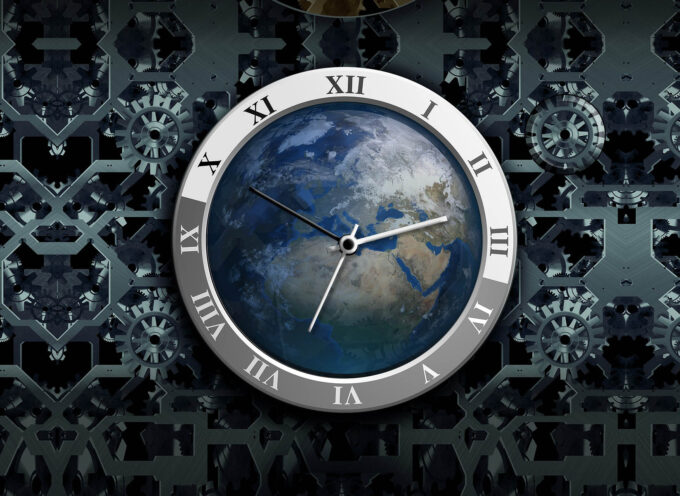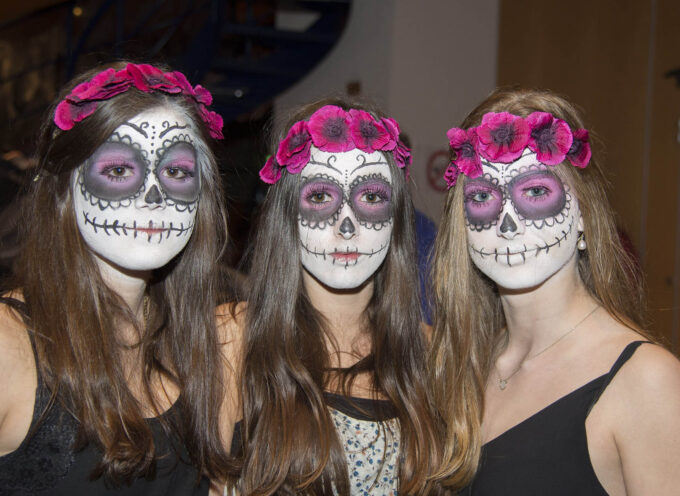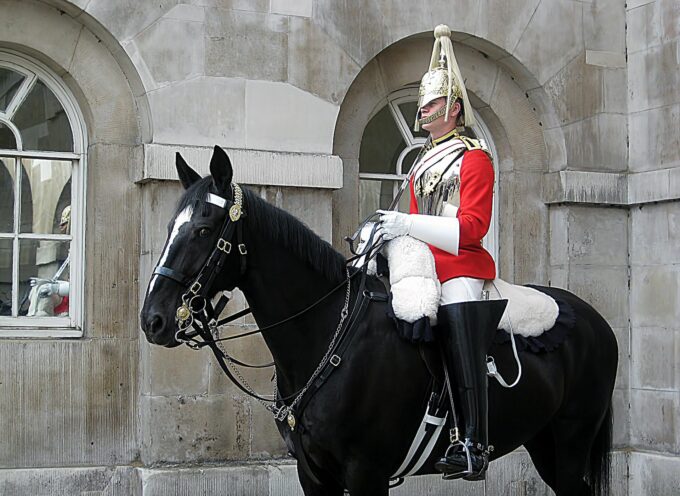ANGIELSKI
April Fool’s Day in different countries The origin of April Fool’s Day has been much discussed through the ages. Many theories have been suggested but one thing is certain, April Fool’s Day is a day celebrated in many countries on 1st April. In some countries, including the United Kingdom, Canada, Australia and New Zealand, the April 1 tradition says you have to make a joke before midday: if somebody pulls
Toxic friendship Toksyczna przyjaźń A harmful friend or a toxic friendship can be one of life’s hardest „to forgive and forget” relationship disappointments. It doesn’t mean that every relationship is toxic – you just have to be careful and know how to recognise a toxic person. The User has friends as long as he/she can use them for some purpose of his/her own. He’ll like you as long as you
Wybierz odpowiedź a, b lub c, dobierając słowa najlepiej pasujące do tekstu. A lollipop detective In TV series there are many (1) ___________ characters and there are many different detectives as (2) __________. Some of them become famous and we watch their adventures for (3) ____________, others disappear from the silver screen as fast as they (4) _________. Amongst the most famous detectives there is one who will be remembered
The same problem every year! Where to organize your birthday party? What to serve? What to organize to make all your friends say, ”It was the best party I’ve ever been to’’! The answer is simple: serve caviar (kawior), the best champagne in the world and other munchies (przekąski). Ask Michael Jackson to play a concert for your guests and invite the most popular people in the world! Such a party was
Zadania TRUE or FALSE A secret of Jukkasjarvi Jukkasjarvi is located 200 km north of the Arctic Circle, in the heart of Swedish Lapland and is a normal village with a small museum and a pretty church. So, what’s its secret? Each year a team of snow-builders, architects, designers and artists from all over the world create the Icehotel. In winter 2005/2006 the hotel had eighty rooms, it was around 7000 square metres and to
GAP FILLING Wybierz najlepiej pasującą odpowiedź (a, b lub c) do każdej luki. HOW BORED CAN YOU GET? Some parties are not ……………… (1) at all and you know, it may be a lot of effort to keep …………… (2) all the time (you don’t want to offend the host, of course!). But life can be interesting in any situation. Instead of getting bored, try to analyse a ……………. (3) neighbour. There
W każdej rozmowie może pojawić się czas, pora roku, data lub miesiąc… Te nazwy po prostu trzeba znać! Times – Godziny an hour – godzina (jeżeli mówimy o liczbie godzin) How many hours do you need? – Ile godzin potrzebujesz? time – czas (jeżeli pytamy o godzinę, czas) What time is it? – Która jest godzina? It’s 3 o’clock. – Jest trzecia. at – o godzinie At what time do you want to
W sytuacjach codziennych możesz używać wiele struktur gramatycznych. Oto kilka najpopularniejszych. Present Simple (czas teraźniejszy prosty) Kiedy użyjesz? Najczęściej używany czas przy mówieniu o sytuacjach życia codziennego. Użyjesz go, jeżeli mówisz o: swoim lub czyimś hobby; zwyczajach; rzeczach, które robisz co jakiś czas (always, never, often, sometimes, every day, every year). Przykłady: He likes good books. (On lubi dobre książki). We go to the theatre every month. (Chodzimy do teatru co
Find a mistake Zadanie Znajdź 11 błędów gramatycznych w tekście. Jeden błąd został już znaleziony. What do celebrities read? Actors, actresses and other celebrities doesn’t (don’t) have much time. They works all the time to make their fans happy. You shouldn’t be surprised, though, that they also have their favourite books. Aaron Spelling, a famous producer of ”Beverly Hills 90210”, loves ”Tom Sawyer” by Mark Twain and ”The Catcher in
You have a dressing up party but you don’t know if you’ll have a good time. Answer the questions below by choosing A, B or C and you will find out which costume may make you feel comfortable! 1. When you go to a party, you: A. arrive late so that everybody’s already there. B. don’t care when you arrive. C. always arrive earlier before other guests arrive. 2. When
Carnival means party time! We all know it. We want to look great and we pay a lot of attention (zwracać uwagę) to our outfits at this time! There are two main types of Carnival parties: a normal party („just” a party – where you want to look nice and have a great time); a dressing up party (impreza przebierańców) (not „a childish” party – but one in which you
Zadanie Read the text below and decide whether the sentences in the table are true or false. In English speaking countries the traditional Christmas dinner is roast turkey (pieczony indyk) with vegetables and sauces. For dessert lovers there is fruity Christmas pudding with brandy sauce. Mince pies (paszteciki), pastry cases filled with a mixture of chopped dried fruit are also very popular. In the USA, dinner is usually roast turkey, goose
Do you have Christmas spirit? Czy masz w sobie świątecznego ducha? Do you really enjoy Christmas or maybe you just wait for the time off from school? Answer the following questions choosing Yes or No. You’ll find out if you are crazy about Christmas. 1. Do you think of decorating the Christmas tree at least a month before Christmas. . YES NO 2. Do you make a long, special list of
Your Lucky Christmas Charm Twój świąteczny amulet We all wait for Christmas. Presents, food, family meetings and other fantastic things which happen only at that time. Write down the name of a person you want to buy a present for. Change all the Polish letters into international ones, e.g.: Ł=L, Ó=O, Ż=Z. Now write a number for each letter (use the table below) and add up the numbers as long as there’s only
Read a story The great excitement arose among the people in my school when somebody had hung a note with “To whom it may concern” written on it. It was a leaflet left by our Physical Education coach. It was inviting all the volunteers to join Adventure Camp during the winter holiday. What was important, I felt like going there! I was ready to pack up and go! When I met the P.E. teacher I had all
W języku angielskim rzeczowniki dzielimy na policzalne (Countable nouns) i niepoliczalne (Uncountable nouns). Które rzeczowniki są policzalne? Rzeczownik policzalny to taki, który ma liczbę pojedynczą i mnogą, np. lake, lakes – jezioro, jeziora. Rzeczowniki policzalne to te, które możemy bez trudu policzyć, np. an apple – jabłko three apples – trzy jabłka a book – książka ten books – 10 książek Które rzeczowniki są niepoliczalne? Rzeczowniki niepoliczalne to te, których nie możemy
Long-distance relationships Związki na odległość You met somebody very interesting during the holidays or perhaps your parents decided to move. Are you afraid you’re going to loose your friends? And what about your boyfriend or a girlfriend? If you really care about people you like, there are many different ways to keep in touch with them: a) make a phone call – call your friends sometimes. You don’t have to
Past Simple & Past Continuous Porównaj zdania w obu czasach Past Simple I watched this movie yesterday. (Obejrzałem ten film wczoraj). You wrote those letters two years ago. (Napisałeś te listy dwa lata temu). Did he buy me a present? (Czy on kupił mi prezent?) She drove very well. (Poprowadziła bardzo dobrze). It didn’t rain yesterday. (Wczoraj nie padał deszcz). Why did we learn history in one hour? (Dlaczego nauczyliśmy
Take care of your body Dbaj o swoje ciało Do a quick test! If you use the wrong cream, it won’t improve your complexion. What’s more, it may cause a lot of problems. Imagine: you’ve got an oily complexion and you use an oily cream. There would be no problem for your skin to produce thousands of spots! Do a quick test and find out what type of complexion you’ve got. Put a thick layer
Future Simple W języku angielskim jest wiele sposobów na mówienie o przyszłości. Jednym z nich jest czas Future Simple. Musisz jednak pamiętać, że konstrukcji tej użyjesz tylko w określonych przypadkach! Twierdzenie Osoba + WILL + czasownik (w formie podstawowej) + … We WILL EAT it tomorrow. (Zjemy to jutro). Pytanie WILL + osoba + czasownik (w formie podstawowej) + … ? WILL you EAT it tomorrow? (Czy zjecie to jutro?) Przeczenie Osoba +












